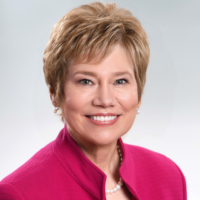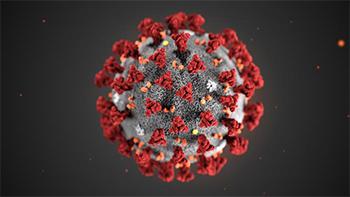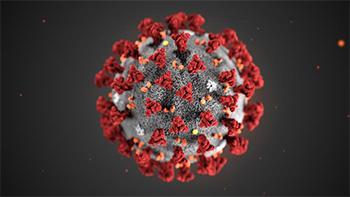The new coronavirus has hit Georgia.
Gov. Brian Kemp said Monday night that two individuals in the state are confirmed as having the virus, known as COVID-19. The two are in the same household, and one had traveled recently to Milan, Italy, where there is a significant outbreak of the disease.
“Georgians should remain calm,’’ Kemp said in a late-evening news conference.

The individuals are in home isolation and doing well, said Dr. Kathleen Toomey, the commissioner of the state Department of Public Health. Both have mild symptoms, and have been joined at home by relatives who’ve had contact with them, to keep the illness from spreading.
“I suspect we’ll see other cases, and I hope they go as smoothly as this,’’ Toomey told reporters.
Toomey said the individual traveler called a physician, who had that person and another come to the office via a separate entrance. Their specimens for analysis were produced Saturday, and the CDC commenced testing. “We got the result back this evening,’’ Toomey said.
State officials did not disclose the people’s’ identities, citing privacy rules. They live in Fulton County.
Public Health said it’s working to identify any contacts who may have been exposed while the individuals were infectious. Individuals identified as having been exposed will be contacted directly by a Public Health epidemiologist and monitored for fever and respiratory symptoms.
COVID-19, also known as the novel coronavirus, is continuing to spread around the world, with more than 89,000 cases and 3,000 deaths globally. A surge in new cases in Washington state had pushed the total number of infections in the United States past 100 as of Monday evening.
At least six people in Washington state have died from the virus.

Testing for the novel coronavirus has lagged in Georgia and nationally.
The Georgia Public Health Lab recently received a diagnostic test kit from the CDC for COVID-19, but like those sent to other states, its components were flawed.
Nancy Nydam, a spokeswoman for the Department of Public Health, told GHN on Monday that the Public Health Lab got a new test kit over the weekend and began validating the components. “Barring unforeseen issues like those previously, they should be able to begin testing the end of this week,’’ she said.
That would speed up identification of possible infections.
On Monday, following criticism of the federal response, Trump administration officials promised a rapid expansion of the country’s testing capacities, the New York Times reported. With the help of private companies and academic centers, as many as a million diagnostic tests could be administered by the end of this week, said Dr. Stephen Hahn, commissioner of the FDA.
Gov. Kemp said he spoke on Monday evening with Vice President Mike Pence, who is coordinating the federal response to the disease, about the two confirmed cases.
“Our team has been working around the clock to prepare for any scenario,’’ Kemp said in a statement. “Already, state health officials have established contact with these individuals to gather more information, monitor their condition, and determine any exposure. They are confident that our efforts to prepare for this moment have enabled us to manage these cases appropriately and minimize any risks moving forward. We remain in constant communication with our partners at all levels of government, and we will continue to update members of the public as information becomes available.”
Toomey said in a statement that Georgia foresaw the likelihood of finding cases of COVID-19, and that the state planned for that eventuality.
“The immediate risk of COVID-19 to the general public, however, remains low at this time,’’ she said in a statement. “I cannot emphasize enough the need for all Georgians to follow the simple precautions that DPH always urges to prevent the spread of respiratory viruses.”

COVID-19 spreads through the air when an infected person coughs or sneezes. Symptoms appear within two to 14 days after exposure and include fever, cough, runny nose, and difficulty breathing. Those considered at risk for contracting the virus are individuals who have traveled to areas where there are ongoing outbreaks of COVID-19 or individuals in close contact with a person infected with COVID-19.
Kemp formed an 18-member task force last week to develop Georgia’s response to COVID-19.
The task force includes Homer Bryson, director of the Georgia Emergency Management & Homeland Security Agency; Felipe den Brok, director of Atlanta’s Office of Emergency Preparedness; state Attorney General Chris Carr; and Cherie Drenzek, the state epidemiologist.
The task force is chaired by Toomey.
Public Health advised Georgians to:
** Wash your hands often with soap and warm water for at least 20 seconds. If soap and water are not available, use an alcohol-based hand sanitizer.
** Avoid touching your eyes, nose, and mouth with unwashed hands.

** Avoid close contact with people who are sick.
** Stay home when you are sick.
** Cover your cough or sneeze with a tissue, then throw the tissue in the trash.
** Clean and disinfect frequently touched objects and surfaces.
Health officials have urged Georgians not to ignore this season’s strain of the flu, which has killed many more people than COVID-19 both nationally and internationally. Unlike the situation with the coronavirus, there is a generally effective flu vaccine.
“The flu is still widespread and active throughout the state, so if you have not already gotten a flu shot, it is not too late,” Public Health said. “While the flu shot will not protect against COVID-19, it will prevent serious complications that require hospitalization and prevent overburdening the health care system in the event of a COVID-19 outbreak.
“If you have recently traveled to areas where there are ongoing outbreaks of COVID-19 and develop fever with cough and shortness of breath within 14 days of your travel, or if you have had contact with someone who is suspected to have COVID-19, stay home and call your health care provider or local health department right away. Be sure to call before going to a doctor’s office, emergency room, or urgent care center and tell them about your recent travel and your symptoms.’’

